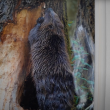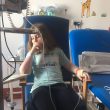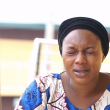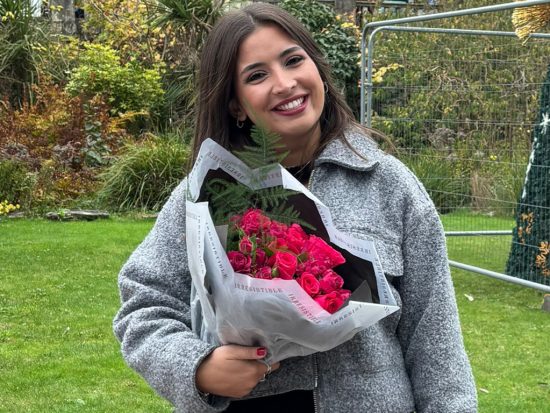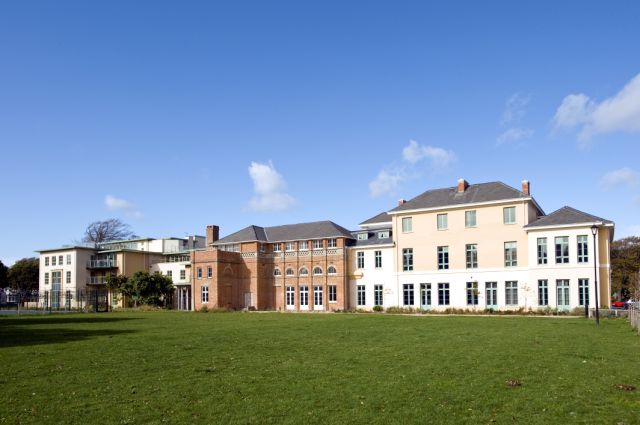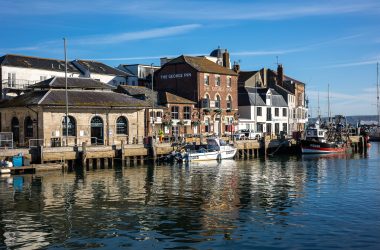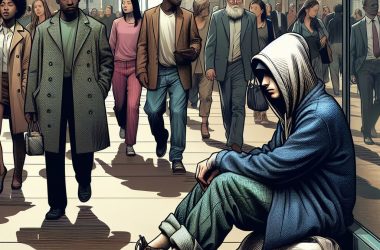Natasha Salloum’s Four Years Forward emerged as Best TV Feature at the 2024 Broadcast Journalism Training Council Awards last week, recognised for its powerful portrayal of Beirut’s resilience after the port explosion. This is the story behind the story—her journey back to the city, the weight of personal trauma, and the people who helped her piece it all together.
THE EARTH QUIVERING BENEATH MY FEET, SIRENS BLARING, MY HEART POUNDING. I cannot breathe. For nearly two hours, I think the worst—I think I’ve lost my dad.
It’s August 4, 2020, a day I cannot forget. For me and thousands like me in Beirut, the explosion at the port is a seismic event. It shatters everything we know, leaving only fragments to piece together. In the chaos that follows, I cannot find my father. I fear the unthinkable. Miraculously, he survives, though with life-threatening injuries—injuries that require ongoing treatment. That moment—the uncertainty, the fear, the relief—has stayed with me ever since.
Four Years Forward was born out of that experience. It is a small homage to what my community endured—and to the strength it took to move forward. It’s not a film I wanted to make, but one I felt compelled to.
After the explosion, I struggled. Insomnia. Anxiety. A heart that wouldn’t stop racing. I found it hard to focus. Therapy helped, and slowly, I began to function again. When I decided to come to Bournemouth University, I felt I was starting to regain some control. By the time my term began, my dad too had returned home, though his recovery was far from complete.
Every time I spoke to my family, every time I returned to Beirut, I saw the city and its people trying to rebuild. It felt like a reflection of my own journey—step by step, piecing together what had been shattered.
As a journalist, I was learning new skills, figuring out how to tell stories that mattered—and the story that mattered most to me stayed quietly in the background. Not fully formed, not a story yet, but a jumble of images and emotions that followed me every day.
When it came time to decide on my final project, I knew the opportunity had arrived. I hesitated, unsure if I had the expertise to tell it. I hadn’t taken the documentary course, and I felt this story had to be visual. It had to be seen and heard—the pain in the survivors’ eyes, the sound of their voices, the destruction all around. Could I do it?
I wasn’t sure. Every time I thought about it, I came up with the same answer: I couldn’t let this story go. I spoke to my professor, unsure if I could pull my scattered ideas into a short film. The reassurance I received made all the difference.
You know what you want to do, I was told. You have a great story to tell and you have the access you need to tell it. Put your heart into it—the rest will follow.
ARRIVING IN BEIRUT to film was surreal. It was the city I knew, the city that was home—but this time, it felt different. I felt different. The weight of my assignment hung over me. Could I really get people to talk to me? To share their pain? And if they did, what would that do to them? What would it do to me?
The day after I landed, I went to the port. I had a list of shots in my head I wanted to check out—angles, locations, the details I wanted to capture. I was excited to work on a story I felt so passionate about, but I was also hesitant. This wasn’t just a film; it was a confrontation with wounds that still hurt.
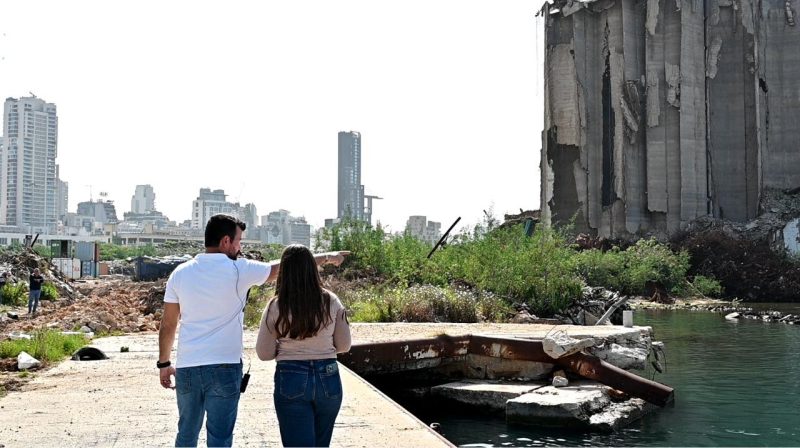
Juggling the stress of a final project with the weight of an emotionally loaded topic wasn’t easy. I kept telling myself to focus on the reporting, to approach it as a journalist. And for a while, I did. I lost myself in what I needed to do.
Then, all of a sudden, it hit me. My heart started racing. I felt the familiar sense of panic. The sun glimmered harshly on the destruction that still scarred the site. Why was there so much rubble—still? I tried to concentrate, but the memories flooded back—the screams and the smell of blood in the hospital, the sheer horror of it all.
I sat on the sidewalk, staring into the horizon. This was where our lives were shattered. Where my father almost lost his life. Where Beirut was attacked and deformed. Some buildings had been rebuilt for port operations to resume, including the petrol station. But the rubble—the rubble!—it was still there. Unmoving. Stagnant. Why? Where was the lively port I remembered?
Suddenly, I was angry. I got up and started pacing. I needed to pull myself together. I needed to tell this story. Not just for me, but for my city, my people. Four years have passed, but this isn’t ancient history. It still hurt. It still mattered.
I didn’t know where to begin. There were so many stories to tell, so many lives to piece together, and I was still grappling with my own pain. I’d read about how revisiting trauma through storytelling could be cathartic, but I wasn’t sure I believed it. Not yet.
When I finally started interviewing, I felt the weight of being the person asking grief-stricken, traumatised individuals to revisit their pain. I was cautious, mindful of everything I’d read and prepared for. My priority was clear: do no harm. I approached every conversation carefully, working hard to phrase my questions in a way I hoped wouldn’t reopen wounds unnecessarily.
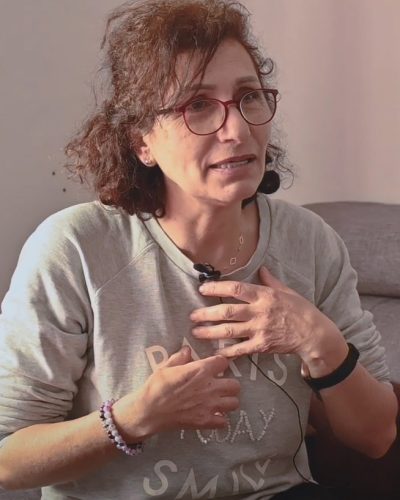
The first person I met was Marie, a woman I found almost by chance. She lived close to the port. At first, she hesitated—her house was too modest, she said, and she didn’t know where to start. I reassured her: It’s just a conversation. We can stop whenever you like. What followed was a story of pain, spoken with quiet resolve. When we stopped recording, she stood up, hugged me, and said: I never knew it would be so liberating to talk. Thank you. I hope you see better days. May God bless you.
There were others, too, whose words stayed with me. Charbel, who had served in the army, was one. He told me he wanted to share his story in honour of fallen colleagues: People who have not just been killed and injured, but wronged, too. Maybe if we keep talking about it, someday justice will prevail. I hadn’t dared to believe the research, that revisiting trauma could provide relief, but I began to see it happen—slowly, gently—in these interviews.
ALTHOUGH NEITHER MY FATHER NOR I are tangibly part of the documentary’s storyline, we are there—in every shot, in every question I asked, in every decision I made. I know there’s subjectivity here, but I’ve come to see that sometimes that isn’t necessarily a flaw. In her work, Valuing Subjectivity in Journalism, Phillipa Chong explores how bias, emotions, and self-interest can serve as positives—especially in stories where objectivity may not reach the heart of the matter.
For me, being close to this story gave me clarity. It allowed me to see the pain others might overlook, to capture the quiet resilience that those uninvolved might miss.
And now, as I stand here, thrilled at this accomplishment, I feel something else, too. Panic. It’s a strange mix—gratitude for what I’ve achieved, and unease that this ‘good’ has come from a tragedy, and all the emotions of old rushing back. The truth is, I haven’t told the story. I’ve only gathered fragments—lives, moments of hope, echoes of pain. I have only scratched the surface.
I will be back—not as the journalist I was when I began, but as a better storyteller. I will return to Beirut, to the port, and to my people, to tell more of what they are living through. There’s more to tell—a lot more.
Natasha Salloum, who graduated from MA Multimedia Journalism at Bournemouth University, now works at MBC Studios in Riyadh. She can be contacted on natasha.a.salloum@gmail.com


